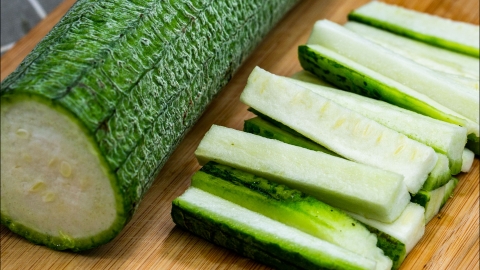Can patients with hypertension eat luffa?
Whether patients with hypertension can eat luffa (sponge gourd) depends on the condition. Patients with mild conditions can consume it in moderation, while those with severe conditions or specific symptoms should avoid it. Detailed analysis is as follows:

For hypertensive patients whose blood pressure is well-controlled and without severe complications, consuming luffa can aid in managing their condition. Luffa is rich in dietary fiber, which promotes intestinal motility and facilitates lipid excretion, helping maintain normal blood lipid levels and indirectly stabilizing blood pressure. Its abundant potassium content helps eliminate excess sodium from the body, regulates electrolyte balance, and provides an auxiliary blood pressure-lowering effect. Additionally, luffa has low calories and high water content, which increases satiety without imposing excessive burden on the body, making it a suitable dietary choice for hypertensive patients.
For hypertensive patients with severe conditions, such as renal insufficiency or significant edema, eating luffa may cause adverse effects. Due to its high water content, excessive consumption can increase the kidney's burden of excreting water, thereby worsening edema. When kidney function is impaired and the ability to excrete potassium is reduced, potassium from luffa may accumulate in the body, leading to hyperkalemia, which can affect normal cardiac function and threaten health.
Regardless of the severity of their condition, hypertensive patients should control the amount of luffa they consume, appropriately combine it with other foods, and follow medical advice regarding their diet.







